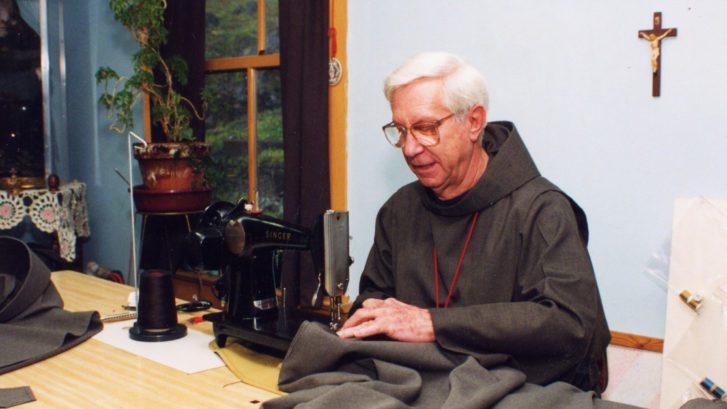If I were to stop you and ask you to describe a successful person, I dare say most of you would think in terms of income. Success for most of us means income and wealth, and financial prosperity means success in our society. Nine out of ten people would say that success in life has something to do with making money; that is the popular thinking of the world.
But today we are in Church where a different set of values supposedly prevails. This is the time and place for us to reconsider the concept of success. Let’s face it, no one wants to fail, all of us want to succeed. Most of us would agree that the greatest expert on life is Jesus. That was His specialty, He knew how to live. In just a few short years He built a life that made a lasting impact upon the world. What did success mean to Him?
Our Gospel reading tells about a day when he talked to His disciples on this all-important subject. They were as confused about it as we are. Their goal in life was to gain prominence and prestige, every one of them aspired to that position. Jesus overheard that argument and told them how to settle it. He said if anyone wishes to rank first, he must be the last of all and servant to all.
It was a startling statement, first for what it does not say. Notice that Jesus makes no mentions of money or power. Apparently, He did not consider it relevant to the discussion. To Jesus money and power had nothing to do with success. When he turned water into wine He didn’t open a liquor store. When He multiplied loaves and fishes He didn’t establish a Walmart. Prestige, prominence: none of that matters to Jesus.
According to Jesus Christ, the only thing that matters, the only thing that counts, is service. If anyone wishes to rank first he must become the servant of all. That, my friends, is probably the most revolutionary thing Jesus ever said. It just does not make sense. How could you believe in today’s world that a mere servant is the most important person in the world? It is hard to believe, but I ask you to take time, look back at history and name for yourself the great people, the people who were truly great. The people who really made a difference.
You would not name the dictators who ruled with an iron fist, the Hitlers, the Stalins. Who would come to mind as being truly great at making a difference? Most of us would name people like Dr. Martin Luther King, Mother Theresa, Nelson Mandela, Gandhi, Pope John Paul XXIII, and St. Francis. These and many like them were people who served the human race or some small part of it. They were truly servants of all.
Look at your own life. Who have been the most important people to you? They were probably not rich or famous, and even if they were both, those were not the things that mattered. I cannot tell you the names of the truly important people in your life, but I can tell you what they did: they took care of you when you could not care for yourself; they taught you to read and to write; they told you about God and His goodness; they spent time with you when you were lonely; they stood by you when you needed it.
The most important people in your life have been those who helped you. In a word, they were your servants. This strange concept of Jesus’ is not so strange after all. It really is true: the meaning of success in the eyes of God is service. Service to big people, little people, rich and poor, clean and dirty: people of all races and backgrounds. Two thousand years after Christ and many people still have not gotten the message that prejudice is always wrong.
Perhaps children can lead us. I am thinking of a little African-American girl called Ruby Bridges. She was six. Think of your own child. Each day during the 60s she was picked up at home and escorted by federal marshals between lines of people jamming the approach to school. They yelled at the children. They yelled things like, “You are less than human. An animal. You do not deserve to live.” All the time Ruby was walking past her lips were moving. When asked by a concerned teacher about what she was trying to say to these people who were yelling at her, Ruby said, “Oh, I was not speaking to them. I was speaking to God. I was praying.” “Were you praying for yourself?” the teacher asked. “No, I was praying for them. I figured that is what God would want me to do,” Ruby answered.
These strange people came into Ruby’s life and offered her a moment of grace, which she saw and took. Someone had prepared the way and told her of God and Jesus. But perhaps only a child still close to innocence, close to God, could act this way. I like to think that if Christ had been outside that school He would have turned to that crowd and said unless you become like Ruby Bridges, you will not enter the kingdom of God.


